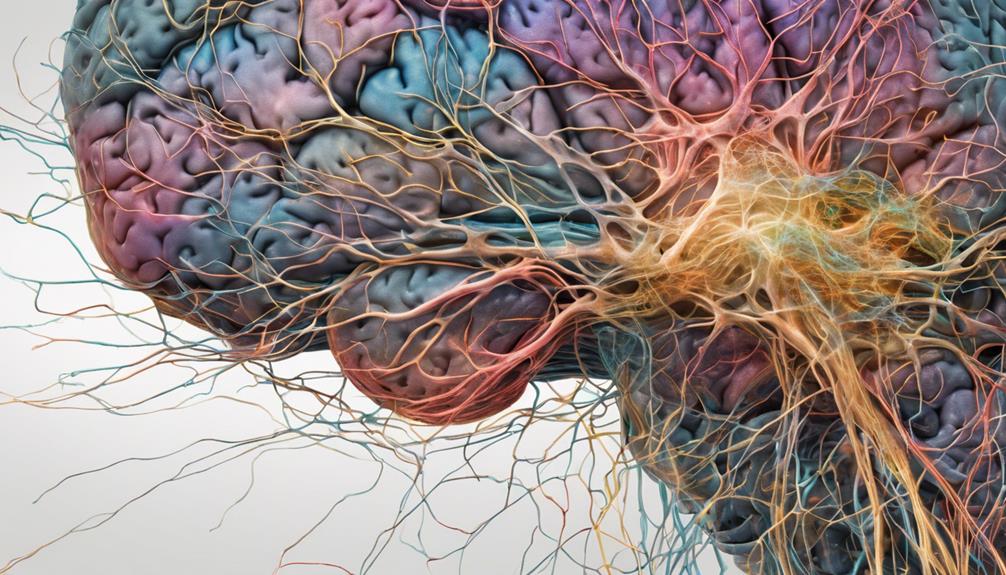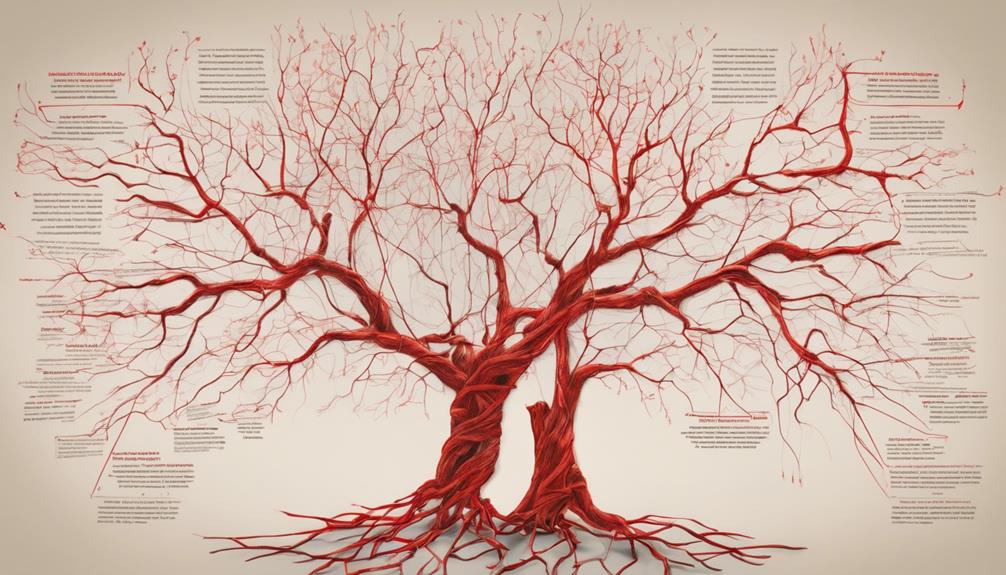Harrison Ford’s purported struggle with Parkinson’s disease is widely misunderstood. The false information originated from his character’s portrayal in the television show “Shrinking,” not from any actual health concerns. Reputable sources have consistently refuted these rumors, and there is no solid proof that Ford has Parkinson’s. He continues to be engaged in his professional work, and reputable media sources have found no validity to the gossip. Spreading misinformation about celebrities can cause unwarranted worry and confusion. If you’re interested in learning the truth behind this situation and its impact, there are plenty of valuable perspectives for you to explore.
Key Takeaways
- There is no credible evidence supporting claims that Harrison Ford has Parkinson's disease; such rumors stem from his character in "Shrinking."
- Major media outlets and fact-checking organizations have refuted significant health issues regarding Ford, confirming he remains active and healthy.
- Misrepresentation of health issues in media can lead to public confusion and undue stress for individuals like Harrison Ford.
- Accurate portrayals of Parkinson's in media improve understanding and empathy, highlighting the importance of responsible reporting.
- Ford's role in "Shrinking" emphasizes emotional resilience and aging, fostering discussions on health representation without confirming his personal health status.
Harrison Ford's Health Status

When it comes to Harrison Ford's health status, it's important to separate fact from fiction. While rumors have circulated suggesting that Harrison Ford has Parkinson's disease, there's no concrete evidence to support these claims. Speculation mainly arose from Ford's character in the series "Shrinking," who's diagnosed with Parkinson's. However, any connection between the character's health issues and Ford's real life is purely fictional.
It is vital to understand how public perceptions and media portrayals can sometimes create confusion about an individual's health, similar to how misunderstandings exist around mental health conditions like Borderline Personality Disorder (BPD).
Ford's performance in recent projects, such as his role as Jacob Dutton in "1923" and Paul in "Shrinking," showcases his ongoing commitment to his craft. Despite the persistent chatter around his health, credible sources have consistently debunked the notion that he suffers from any significant health issues, including Parkinson's disease.
It's essential to recognize that Harrison Ford hasn't publicly confirmed any diagnosis, and he's actively engaging in his career without any disclosed health problems.
The medical community stresses the importance of relying on verified sources and fact-checking. So, while you may hear whispers about Harrison Ford having Parkinson's, remember that these are just rumors without substantiated proof.
Debunking Parkinson's Disease Rumors

Rumors about Harrison Ford having Parkinson's disease have gained traction, but it's time to set the record straight.
There's no official confirmation or credible evidence that Ford has been diagnosed with this condition. Much of the confusion stems from his recent portrayal of a character with Parkinson's in the show "Shrinking," which has led many to mistakenly assume his real-life health mirrors that of his character.
Understanding the importance of reliable information is vital, especially when it pertains to health matters, as misinformation can spread rapidly and cause unnecessary concern. The impact of financial mistakes to avoid can sometimes parallel the consequences of believing in unverified health rumors.
However, reliable sources have consistently debunked the rumors surrounding Ford's health. Major media outlets and fact-checking organizations have found no basis for claims that Ford has Parkinson's disease.
It's essential to approach such health-related rumors with caution, especially when they lack substantiation.
Ford remains active in his career, showing no signs of a debilitating condition affecting his professional engagements.
Impact of Health Speculations

Health speculations can markedly impact both public figures and their audiences. In the case of Harrison Ford, health rumors about a supposed Parkinson's diagnosis have circulated widely, despite being consistently debunked by credible sources. Such unfounded claims can create undue stress for Ford, as he navigates the pressures of maintaining his image while wanting to keep his personal health private.
Moreover, these rumors can lead to increased scrutiny from fans, leading to a breakdown in communication and trust, much like the dynamics seen in trust issues with boyfriends. These rumors also influence public perception, leading fans and the general public to become increasingly concerned and misinformed. When people hear about a beloved actor's health, it stirs emotions and can lead to hasty conclusions based on incomplete information. This underscores the importance of responsible reporting; addressing health speculations accurately can help curb the spread of misinformation.
Additionally, Ford's role in the series "Shrinking," where he portrays a character with Parkinson's, opens discussions about the sensitivity and accuracy of representing health issues in media. By portraying such characters thoughtfully, filmmakers can contribute positively to public understanding.
Ultimately, combating misinformation is essential in ensuring audiences can distinguish between fact and speculation, allowing for a more informed discourse around health topics.
Ford's Legacy in Entertainment

Harrison Ford's legacy in entertainment is nothing short of monumental, marked by his iconic roles in films like "Star Wars" and "Indiana Jones."
His ability to connect with audiences extends beyond film, as demonstrated by his recent work in television, including standout performances in series like “Shrinking” and “1923. ” His ability to connect with audiences extends beyond film, as demonstrated by his recent work in strong>television, including strong>standout performances in series like “Shrinking” and “1923. ” These roles showcase his versatile acting skills and a deep understanding of complex characters. In addition to his television successes, Harry Hamlin’s film career highlights include iconic roles in classics that have left a lasting impression on cinema enthusiasts, further solidifying his status as a talented and enduring performer.
Additionally, Ford's influence is akin to that of other enduring stars, showcasing how celebrity relationships can shape public perception and media narratives.
His impact on popular culture and the film industry continues to resonate, proving that his influence is far-reaching and enduring.
Iconic Film Roles
Ford's legacy in entertainment shines through his unforgettable film roles that have captivated audiences for decades. You can't discuss iconic film roles without mentioning his portrayal of Han Solo in the "Star Wars" franchise, which launched in 1977. This character not only made Ford a household name but also solidified his status as a leading actor.
His roles reflect a deep commitment to storytelling and character development, much like Paula Deen's memorable moments that showcase love and charm. Then there's Indiana Jones, a role that started with "Raiders of the Lost Ark" in 1981 and helped the franchise gross over $5.4 billion in North America.
Ford's versatility is evident in his performances in critically acclaimed films like "Witness" and "The Mosquito Coast," proving he's more than just an action star. His role as Rick Deckard in "Blade Runner" also showcases his ability to tackle complex characters, even when the film initially struggled at the box office.
As he faces challenges related to Parkinson's, it's important to remember how his iconic film roles have left an indelible mark on cinema. Ford's contributions have earned him numerous accolades, including the AFI Life Achievement Award, ensuring his legacy will endure for generations to come.
Television Transition Trends
The landscape of television has evolved considerably, with iconic movie stars like Ford making notable shifts into the small screen. Harrison Ford's recent roles in acclaimed TV shows, particularly "Shrinking" and "1923," illustrate how established actors are embracing high-quality productions. This change showcases Ford's versatility and his ability to tackle complex characters, especially in "Shrinking," where he portrays a character grappling with a Parkinson's diagnosis.
As the industry increasingly values user-centric solutions, opportunities for profound, character-driven stories have emerged, allowing seasoned actors to explore new dimensions of their craft.
The rise of streaming platforms has fueled this trend, allowing stars like Ford to investigate deeper narratives that resonate with audiences. In "Shrinking," the comedy about grief explores themes of emotional resilience and aging, reflecting contemporary societal issues. This shift towards authentic storytelling marks a significant evolution in how we view television, moving beyond simple entertainment to a space where complex characters can thrive.
Ford's performances highlight the industry's commitment to authenticity, enabling him to engage with diverse narratives that were once reserved for film. As you watch these shows, you can appreciate how Ford's legacy continues to adapt, enriching the television landscape and offering viewers compelling stories that provoke thought and empathy.
Lasting Cultural Influence
As audiences engage with Ford's recent performances, they can't help but recognize the lasting cultural influence he wields in the entertainment industry. His role as Dr. Paul Rhodes in *Shrinking*, where his character confronts a Parkinson's diagnosis, has ignited crucial discussions about health representation in media. This portrayal not only humanizes a significant issue but also emphasizes the importance of quality of life, resonating deeply with viewers.
Additionally, his involvement in projects that reflect trusted investment strategies further showcases his commitment to impactful storytelling. Harrison Ford's legacy as an iconic film star stretches back to his unforgettable roles in franchises like *Star Wars* and *Indiana Jones*. These films have grossed billions and entrenched his status in cinematic history. His performances have garnered critical acclaim, highlighting his versatility and relevance in contemporary storytelling, particularly in *1923*.
Beyond acting, Ford's contributions as a conservation advocate and pilot further enhance his cultural influence. He embodies a commitment to environmental efforts that resonates with many.
As you reflect on his career, it's clear that Harrison Ford's impact on both the entertainment industry and broader societal issues will continue to inspire future generations.
Representation of Parkinson's in Media

Accurate depictions of Parkinson's in media really matter because they shape how the public understands the disease.
When shows like "Shrinking" portray these challenges authentically, they foster empathy and reduce stigma.
Music therapy integration can also play a significant role in supporting individuals with Parkinson's, as music therapy enhances emotional well-being and may help in managing symptoms.
You can see how powerful representation is in influencing perceptions and creating awareness.
Accurate Depictions Matter
Understanding the complexities of Parkinson's disease is crucial, and accurate representations in media play a significant role in this. When characters are portrayed authentically, they can illuminate the realities faced by those living with the condition, fostering empathy and awareness.
Take, for example, Dr. Paul Rhodes in *Shrinking*. His character showcases:
- The daily struggles and physical challenges of Parkinson's disease.
- The emotional complexities that intertwine humor and grief.
- The importance of mental health discussions in therapeutic settings.
In addition to these themes, the portrayal of health issues in media can also highlight lifestyle factors for longevity, emphasizing the significance of a balanced approach to well-being.
Through these accurate representations, audiences gain insight into the nuanced experiences of individuals with Parkinson's. This depiction not only raises awareness but also opens crucial conversations about the condition, breaking down stigma. By understanding hallucinations in Parkinson’s, which can be a lesser-known but significant symptom, viewers and readers can deepen their empathy for those navigating the complexities of the condition. Such portrayals encourage a more comprehensive view of Parkinson’s, highlighting the physical, cognitive, and emotional challenges patients may face. Ultimately, these narratives foster greater compassion and support for individuals living with the condition.
Creators like Brett Goldstein, who've personal connections to Parkinson's, guarantee that the portrayals resonate with authenticity. By highlighting the interplay between humor and the emotional challenges of living with Parkinson's, Shrinking encourages viewers to engage with the subject matter more deeply.
Ultimately, accurate depictions matter because they can pave the way for greater understanding, compassion, and support for those traversing the complexities of Parkinson's disease.
Impact on Public Perception
The impact of Harrison Ford's portrayal of Dr. Paul Rhodes in "Shrinking" goes beyond entertainment; it plays a significant role in shaping public perception of Parkinson's disease. By accurately representing a character with a Parkinson's diagnosis, Ford fosters empathy and understanding. His emotional authenticity highlights the real-life struggles many face, allowing viewers to connect with the character on a personal level.
This is particularly important as understanding the emotional and psychological growth that individuals with chronic conditions experience is essential for fostering compassion key domains of development.
This portrayal contributes to broader discussions about mental health, emphasizing how storytelling can influence societal attitudes. Positive feedback from the Parkinson's community underscores the importance of accurate representation in media. When shows like "Shrinking" depict the challenges of living with Parkinson's, they help destigmatize the condition, promoting a more informed and compassionate response from audiences.
As you engage with these narratives, you can appreciate how they open up conversations about not just Parkinson's, but mental health as a whole. By showcasing the complexities of living with Parkinson's, Ford's role encourages viewers to reflect on their perceptions and fosters a deeper understanding of the issues at hand.
This kind of representation matters—it's a significant step toward compassion and awareness.
The Story Behind 'Shrinking

Exploring the heartwarming yet poignant narrative of "Shrinking," viewers are introduced to Dr. Paul Rhodes, masterfully portrayed by Harrison Ford. As a widowed therapist diagnosed with Parkinson's disease, Paul navigates through a world filled with emotional challenges and personal growth.
Co-created by Bill Lawrence and Brett Goldstein, the show resonates deeply, drawing from their family experiences with Parkinson's and dementia.
In "Shrinking," you'll find:
- Moments of laughter that lighten the heaviness of life
- Heartfelt conversations that reveal the complexity of human connections
- Realistic portrayals of aging and the struggles that come with it
This series expertly blends humor with emotional depth, making it a standout in today's television landscape. Ford's performance has been widely praised for its authenticity, shedding light on the realities of Parkinson's disease while exploring themes of grief and therapy.
As new episodes release weekly, you witness the ongoing journey of Dr. Rhodes and those around him, making "Shrinking" not just a story of loss but also of resilience and hope.
Frequently Asked Questions
Does Harrison Ford Have Parkinson's for Real?
You might wonder if Harrison Ford has Parkinson's disease. However, credible sources confirm he doesn't have the condition. His portrayal in "Shrinking" doesn't reflect his real-life health status, as he hasn't publicly disclosed any issues.
Does Harrison Ford Have Any Medical Problems?
Rumors about Harrison Ford's health are like smoke signals—faint and misleading. You won't find credible evidence of any medical problems. He's still shining brightly in his career, enthralling audiences with his performances.
Does Harrison Ford Have a Hand Tremor?
You might wonder if Harrison Ford has a hand tremor, but there's no credible evidence supporting that claim. Speculation often arises from his acting roles, which shouldn't be confused with his real-life health status.
Conclusion
In the end, Harrison Ford's journey reminds us that the truth can often be overshadowed by the shadows of speculation. While rumors about his health swirl like autumn leaves in the wind, it's crucial to focus on his remarkable legacy and the way he continues to inspire through his work. As we navigate the landscape of celebrity health, let's celebrate Ford's contributions to entertainment and honor the real stories that shape our understanding of life and resilience.









